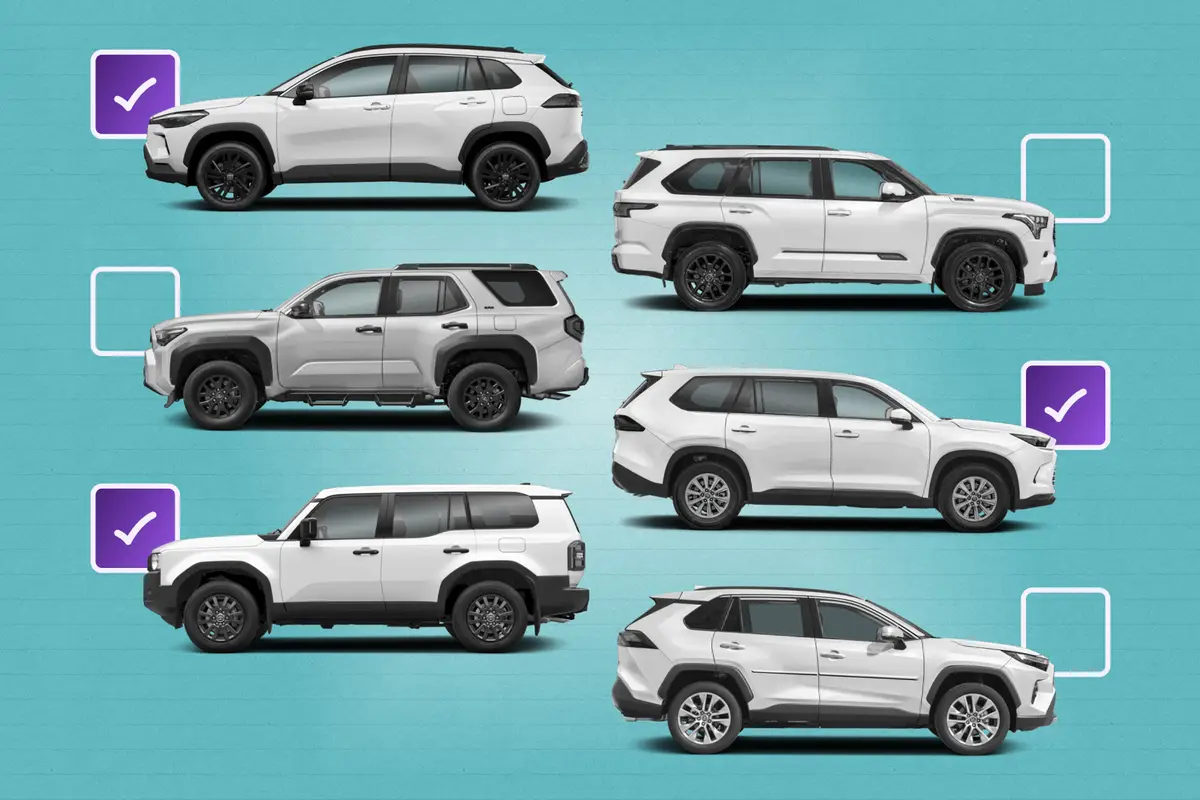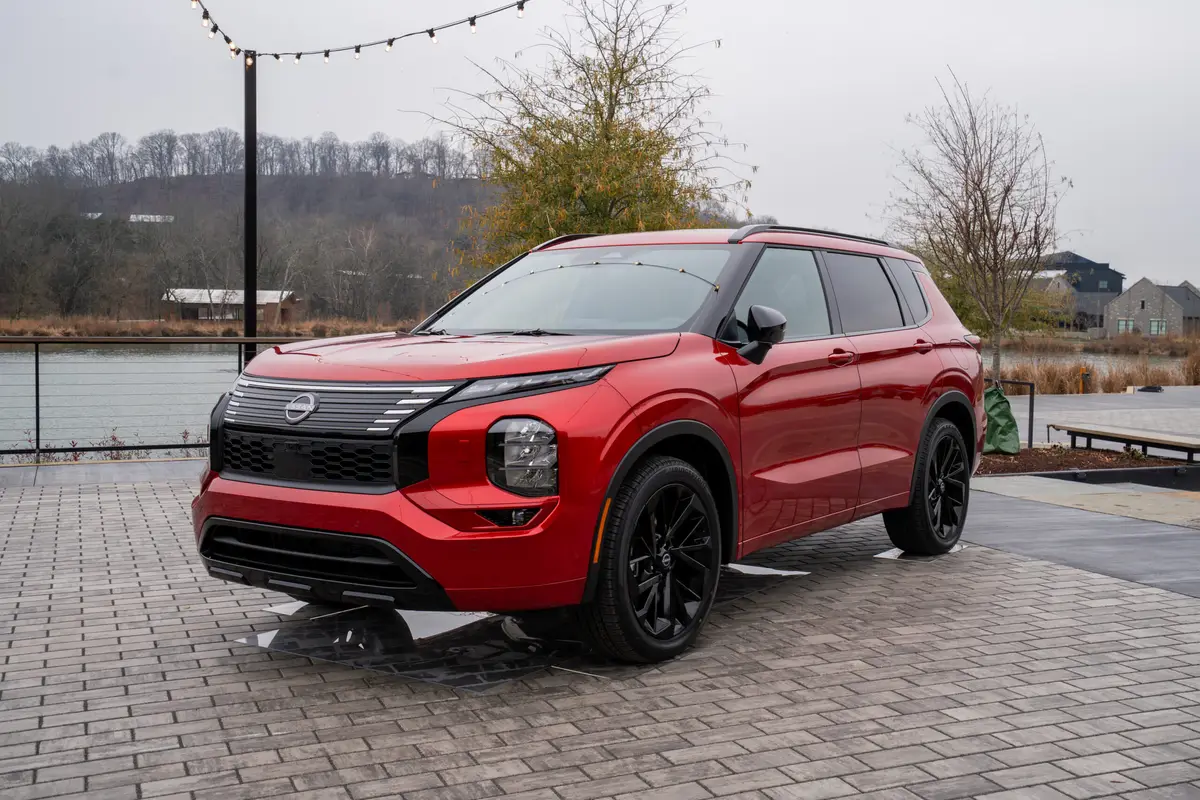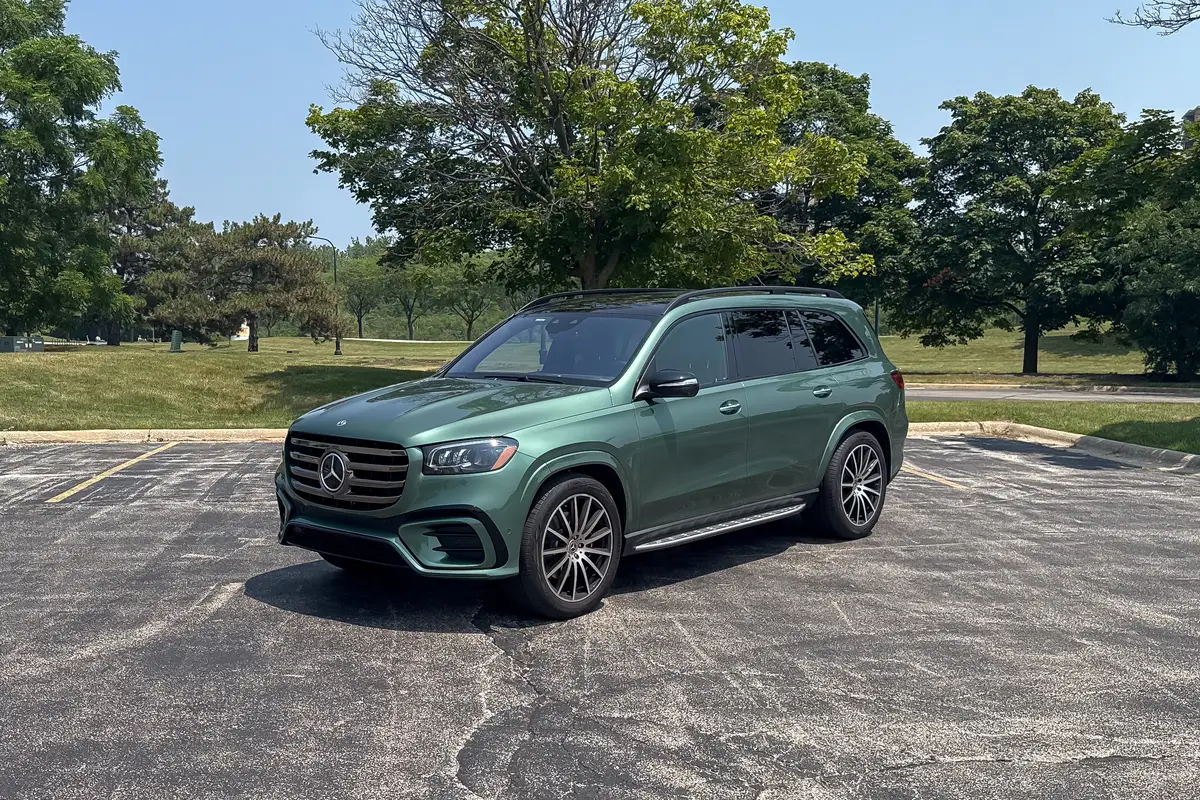Is the 2021 Toyota Prius a Good Car? 5 Things We Like and 4 We Don’t
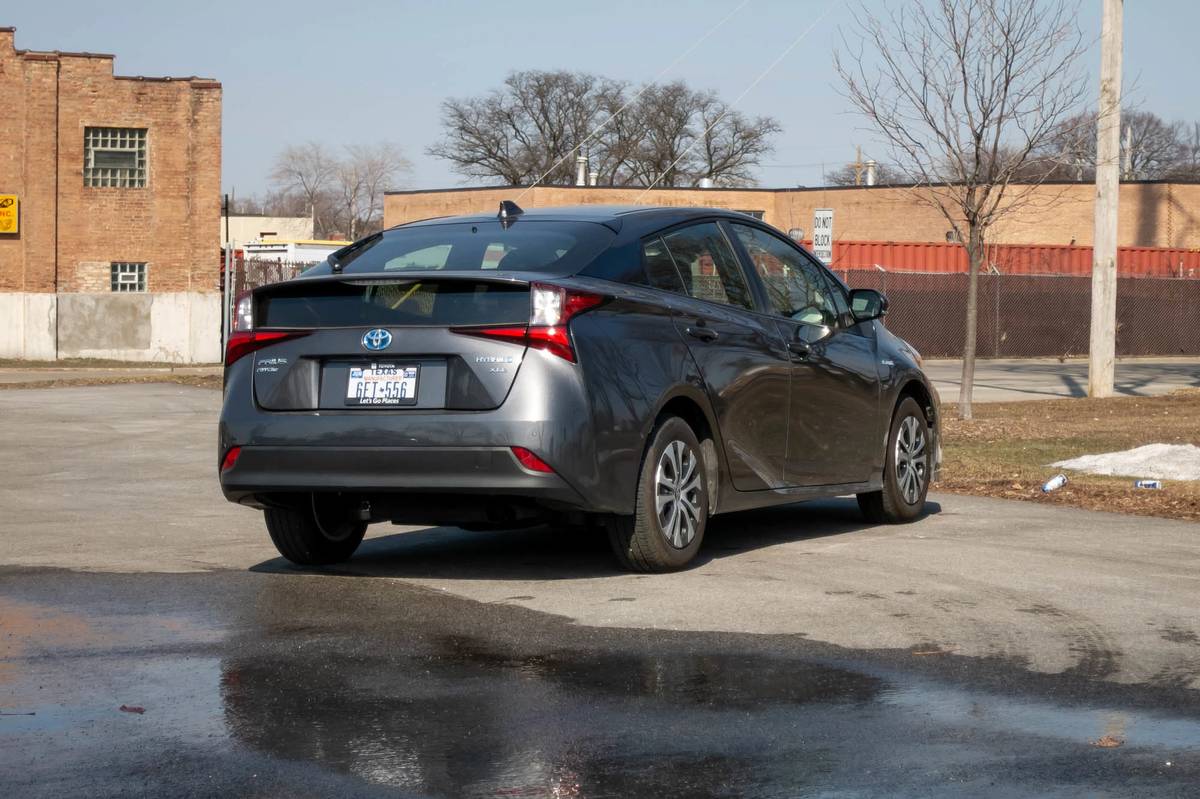
Twenty years into its run, the novelty of the Toyota Prius is long gone. Its distinctive shape has become commonplace and plenty of other hybrids have come on the market. But the Prius remains a popular and fuel-efficient package, with a relatively roomy interior and a strong following among a certain frugal and earth-friendly segment of the population.
Related: 2021 Toyota Prius Review: High Mileage, for a Price
Over the years, the Prius lineup grew to include the smaller Prius c and larger Prius v variants (before shrinking back to exclude them), along with plug-in models, multiple trim levels and the availability of all-wheel drive. Competition has brought a variety of other hybrids to choose from, some of which rival the Prius’ fuel economy without straying far from the looks of a more conventional sedan.
The current generation Prius has been around for five model years, and it’s showing its age. We recently tested a 2021 Prius XLE with AWD and found that there’s still a lot to like, but there are some things we think could be improved. Check out the link above for the full review from Cars.com’s Kelsey Mays, or keep reading for five things we like about the 2021 Toyota Prius and four we’re not so crazy about.
Things We Like
1. Terrific Fuel Economy
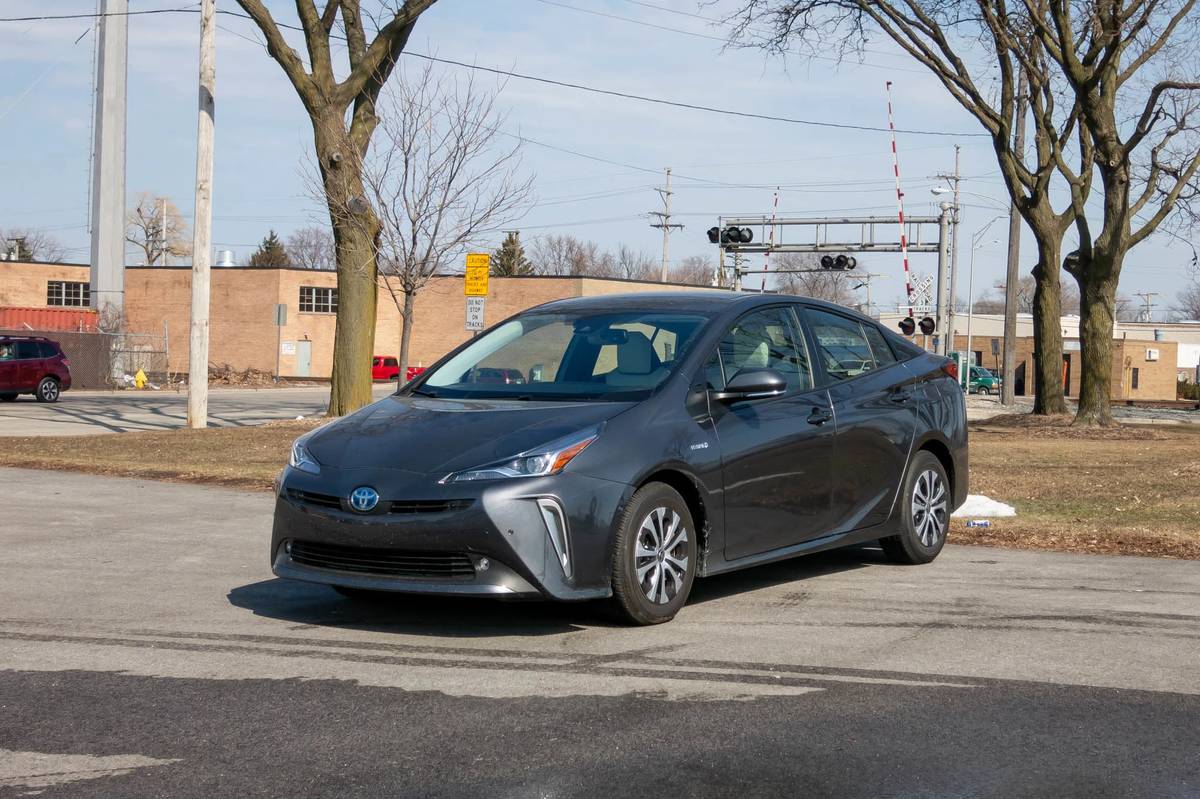
Even in the realm of hybrids, the Prius delivers impressive fuel economy. In base L Eco trim, its EPA-estimated 56 mpg combined is rivaled only by the Hyundai Ioniq Hybrid’s EPA-estimated 59-mpg rating. Other Prius trims with front-wheel drive are good for a not too shabby 52 mpg combined, while AWD versions earn an EPA-estimated 49 mpg combined — an outstanding figure for any vehicle with AWD.
2. Choice of Drive Wheels
In an effort to retain buyers who might be tempted by an SUV, the Prius became available with AWD for 2019. It remains one of the most fuel-efficient AWD vehicles you can buy. The clever system uses an electric motor to drive the rear wheels at speeds up to 43 mph, and it’s completely separate from the hybrid powertrain powering the front wheels. It operates seamlessly and adds only $1,000-$1,400 to the cost, depending on trim.
3. Surprisingly Good Handling
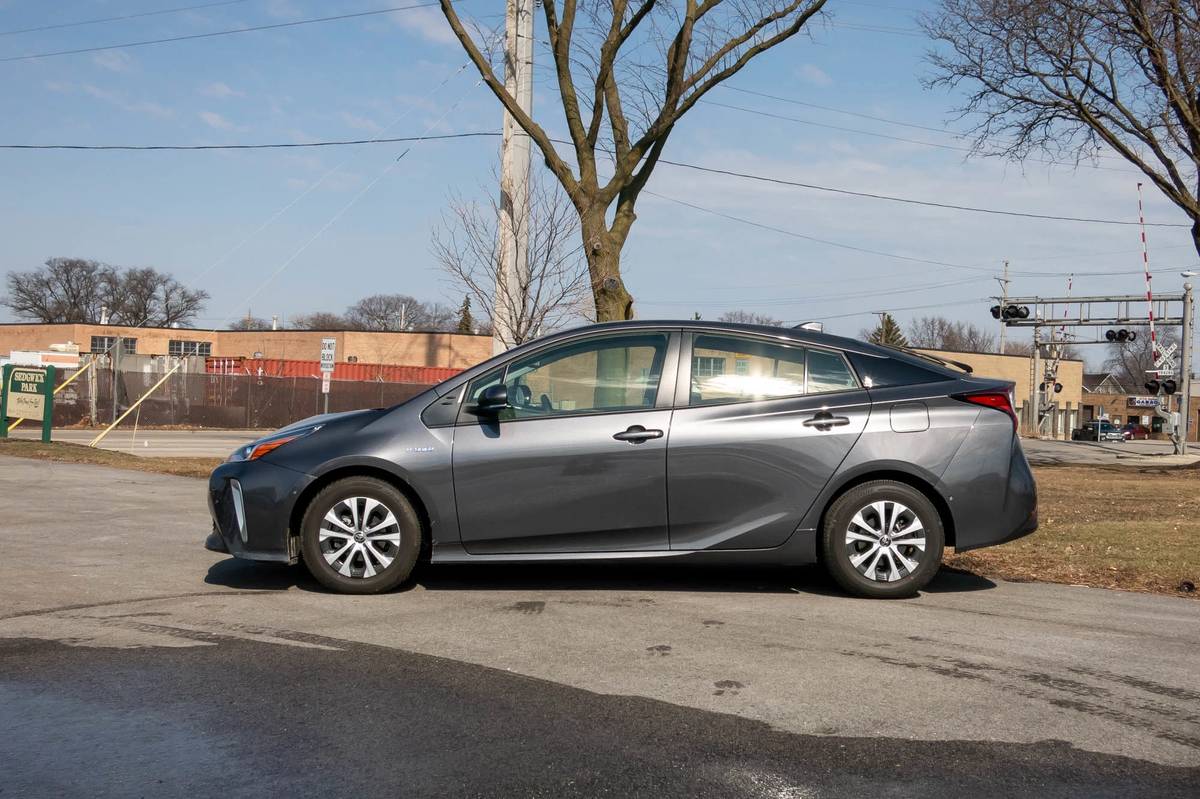
The Prius handles surprisingly well and can be entertaining to toss around in the twisties. The steering is somewhat vague on center but provides lively feedback as you turn into corners, and our AWD test car felt balanced and controlled, with little body lean.
4. Room for the Gang
With room for five occupants and the versatility of a hatchback, the Prius is spacious for its size and is a reasonable substitute for a small SUV. Up front, even the tallest drivers should find plenty of headroom; in back, the seat cushion is a bit low, but there’s still sufficient space for adults. We measured 13.1 cubic feet of cargo room behind the rear seatbacks (note that this is through Cars.com’s independent testing, which is separate from manufacturer numbers). With them folded flat, the Prius can accommodate larger items.
5. Lots of Safety Tech
All Prius trims come with the latest version of the Toyota Safety Sense suite of driver assistance features. This includes adaptive cruise control, automatic emergency braking with pedestrian detection, lane departure steering assist with hands-on lane centering and automatic high beams. For 2021, all but the base L Eco trim get blind spot warning with rear cross-traffic alert. Top trims add curve-adaptive headlights.
More From Cars.com:
- 2021 Toyota Prius AWD-e: Real World Gas Mileage
- What’s New for Toyota in 2021?
- What Are the Most Fuel-Efficient Cars for 2021?
- More Toyota Prius News
- Find Your Next Car
Things We Don’t Like
1. Sluggish Powertrain Response
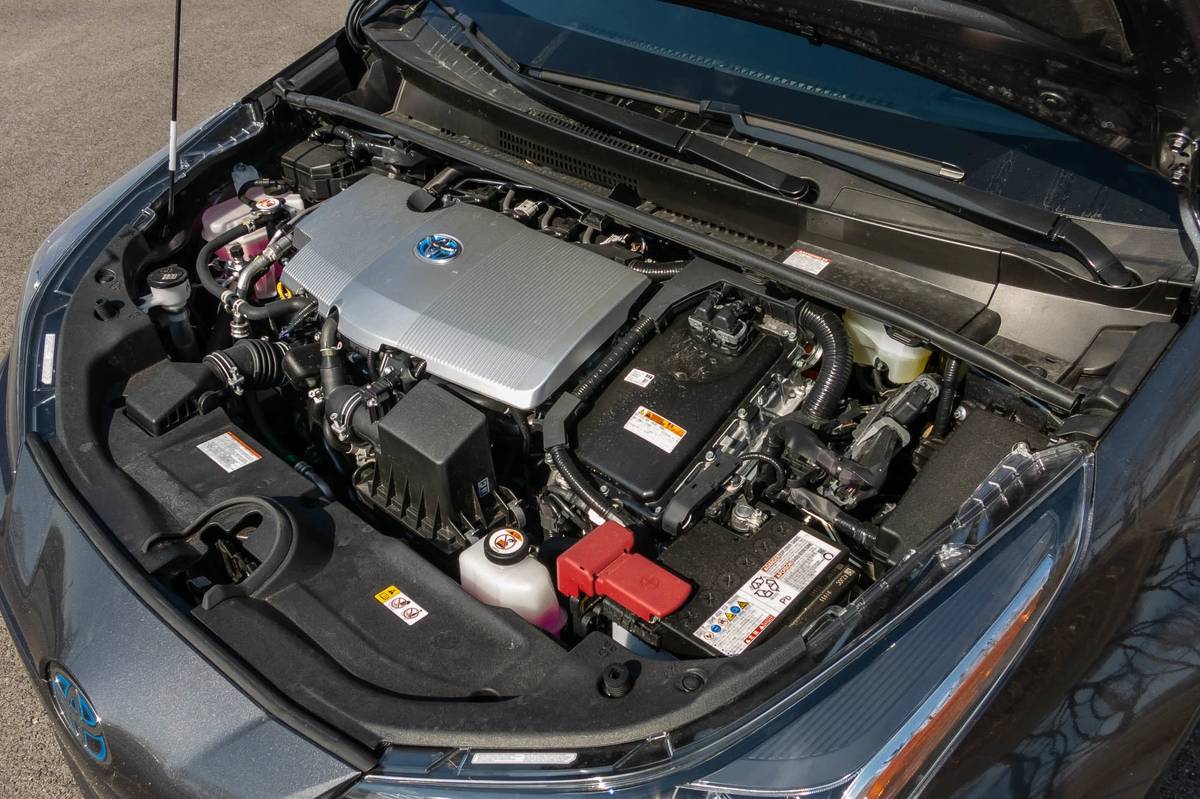
Nobody buys a car capable of fuel economy in the 50-mpg range and expects pulse-quickening performance with lightning-fast responses, but even in the realm of hypermilers, the Prius is a bit of a snore. Give it some juice while underway for overtaking or just upping the pace and the Prius hesitates for a long second or two before the powertrain rises to the occasion. The transmission, which mimics a continuously variable automatic, is part of the problem, as it lacks increasingly common programming to mimic a downshift under acceleration and speed the process along.
2. Talkin’ About Regeneration
All hybrid vehicles use regenerative braking to help recharge the battery during deceleration, using the motor to help slow the car when the driver lifts off the throttle and capturing that energy for an additional boost. These systems have come a long way over the years and have gotten better at mimicking the feel of conventional brakes. The Prius is an exception, with a tentative feel when brakes are first applied and braking assist coming on strong as you press the pedal harder.
3. Noise and Refinement
In their quest for maximum fuel economy, hybrid vehicles often seem lighter on noise insulation than their conventionally powered brethren. Our test Prius seemed particularly noisy on the highway, however. Its Bridgestone Ecopia tires are tuned more for mileage than ride comfort or noise suppression, adding to the din at speed. Overall, the Prius doesn’t earn a lot of points for a hushed and refined ride.
4. Life With the Small Screen
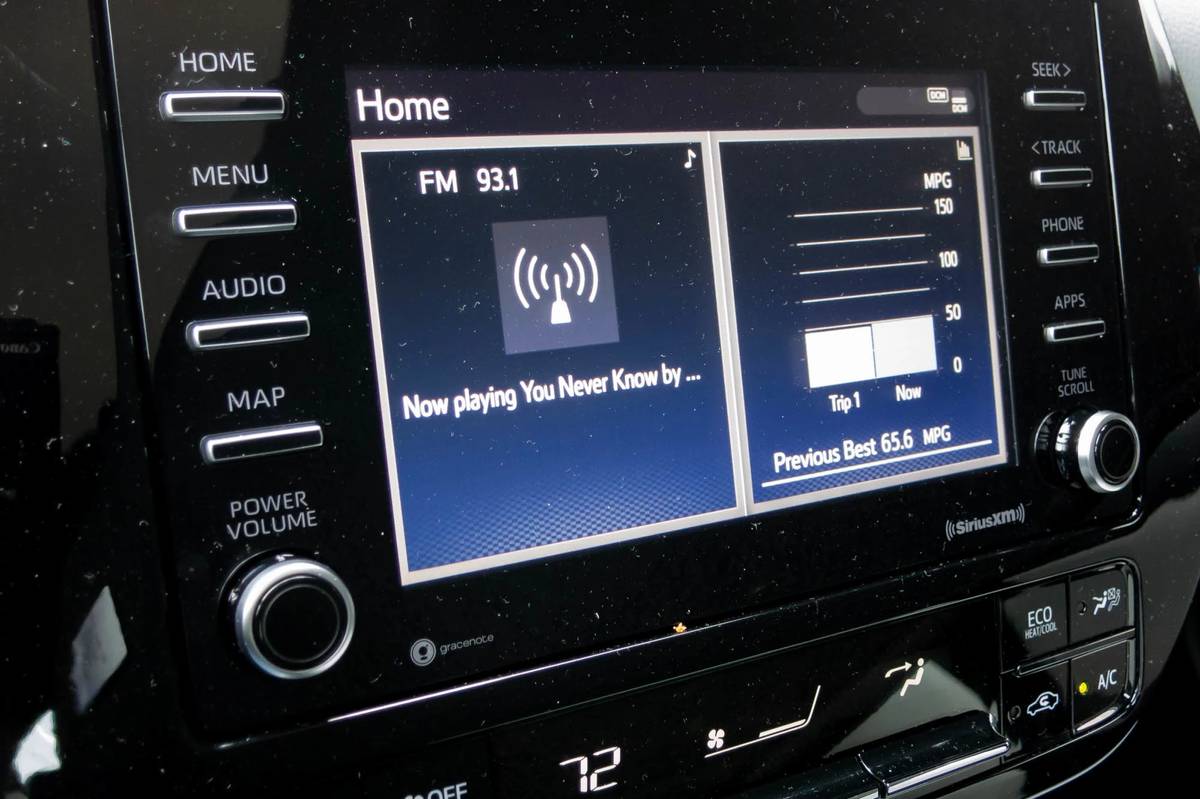
Many entry level cars now come with an 8-inch or larger touchscreen. Not the Prius: Most trims get a system with a 7-inch screen, which at least now comes with both Android Auto and Apple CarPlay compatibility — even if it isn’t wireless and requires a cable. You also get a volume and a tuning knob, although both are on the small side. Step up to the Prius Limited with FWD for an 11.6-inch screen, but note that doing so paradoxically means you lose Android Auto.
Related Video: 2021 Toyota RAV4 Prime: Review
Cars.com’s Editorial department is your source for automotive news and reviews. In line with Cars.com’s long-standing ethics policy, editors and reviewers don’t accept gifts or free trips from automakers. The Editorial department is independent of Cars.com’s advertising, sales and sponsored content departments.
Featured stories
